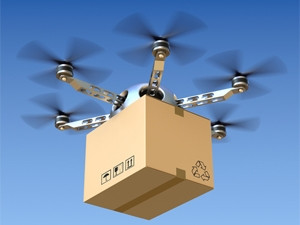
At Mobile World Congress, Ford is showcasing a delivery concept, called Autolivery, which will use self-driving vans and drones to deliver parcels to hard-to-reach places in cities.
Autolivery will see self-driving vans that would transport everything from groceries to medical supplies on the ground, with drones used in the final leg of the journey to reach destinations inaccessible by car. In a city, such places would be a high up block of flats, or where parking is difficult, impractical, or dangerous.
The concept is one of the ideas which came out of a challenge set to Ford employees to create a solution for the 'last mile'. The last mile refers to the last 15 metres, or from kerb to door, in goods delivery which Ford says is widely considered the most challenging part of the goods delivery process to automate.
"The pressure to solve this challenge is expected to increase globally in coming years with GDP growth and a rise in local deliveries due to online sales," says Ford in a statement.
The concept was on display through virtual reality headsets at Mobile World Congress, in Barcelona.
Ford is concentrating on coming up with ideas for how people may use mobility in the future, and how smart cities will operate. It says it is doing this to stay ahead and realises the motoring space is changing. The two areas the company is focusing on is inter-modality and shared mobility.
"Ford has at its heart a culture of disruption and innovation designed to come up with solutions that put people first, to save them time, money and aggravation, and also to make our cities easier to navigate and better to live in," says Ken Washington, Ford VP research and advanced engineering.
The company intends to have a fully autonomous vehicle for commercial application in mobility services such as ride-sharing, ride-hailing or package delivery fleets by 2021.
It also expects continued growth in electrified vehicle offerings, to the point where they outnumber their petrol-powered counterparts in the next 15 years.
Share